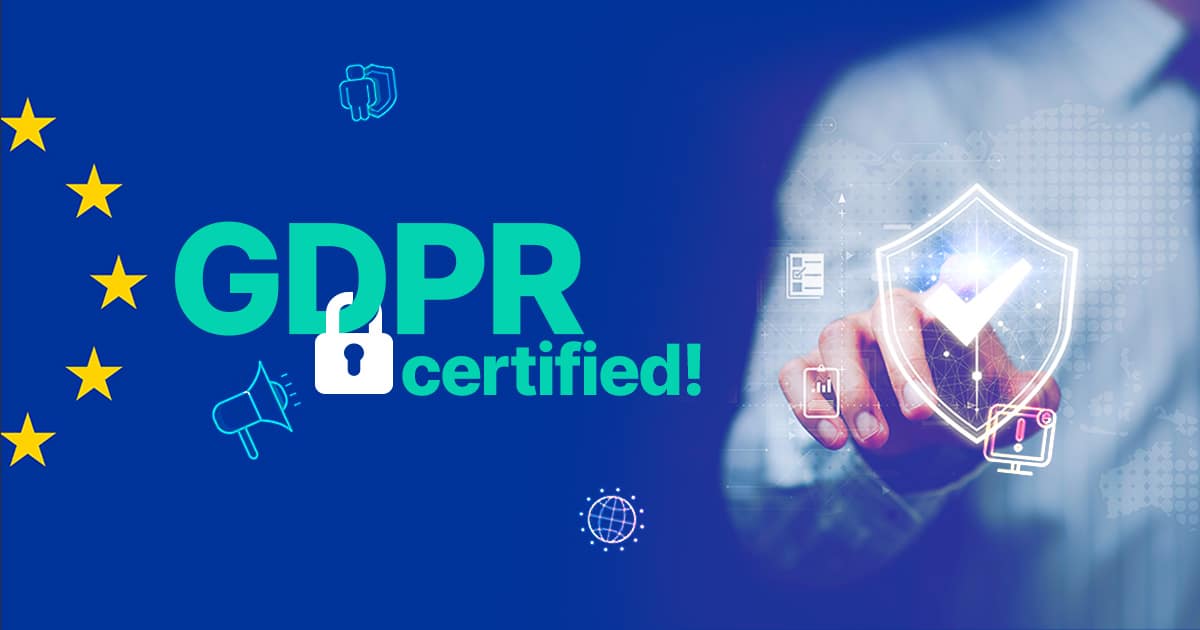In a globe that has seen outsourcing and remote staffing become potent means for enterprises to expand without incurring high overhead costs, data security has emerged as the frontline interest of companies, especially those dealing with sensitive information within borders. The General Data Protection Regulation 2018 did much to alter how personal data is managed, especially when the question of handling such data pertains to citizens of the European Union.
This report explores GDPR data protection law was needed and what is the purpose of GDPR and how being GDPR compliant helps in getting businesses of with companies relying on outsourcing and remote staffing models. In essence, for companies that outsource, depend on a remote team, or run on an outsourcing model, the issue of GDPR compliance becomes more than just regulatory compliance. It becomes a badge of trustworthiness- a promise that sensitive information will be safely in the right hands, making partnerships safer and more secure.
Outsourcing, Data Privacy, and the Global Business Environment
Companies have used outsourcing to reduce costs and obtain unique skills while allowing operational flexibility for years. From customer service and IT support to HR management, companies can tap into an increasingly global talent pool more efficiently. Yet increased flows of personal data between organizations and outsourced teams have sparked concerns about data breaches and privacy violations.
Enforcing strict rules on processing, storing, and protecting personal data is changing the landscape. This law isn’t restricted to companies operating within the EU but also to any business outside the EU that handles the data of its citizens. Thus, for companies performing outsourcing, compliance with GDPR has become a non-negotiable factor to consider when choosing a service provider.
How GDPR Compliance Builds Trust in Outsourcing Partnerships
1. Transparency and Accountability
An outsourcing business or company should know how the business functioning outsources their data. Why is the GDPR regulation important for such businesses then? The importance of GDPR lies in the fact that it ensures such outsourcing companies are transparent with them about the processing activities regarding their data. That involves giving clear descriptions to a client:
- What kind of data has been collected
- For what specific purposes has the data been processed?
- Who accesses the data, along with its storage location
The GDPR makes companies account for detailed records of their data processing activities. GDPR and Data Security go hand-in-hand at all times. Thus, they will be answerable to the outsourcing partners of their clients. Confidence in the use of their sensitive information is kindled because it is treated based on high standards of data protection.
For example, if an organization offering financial services outsources IT operations to an external service provider, it must ensure that the service provider is GDPR compliant and can provide transparency on how customer financial information is processed and stored. Such transparency builds much-needed trust, which, of course, is always an important ingredient in any long-term business arrangement.
2. Risk Mitigation and Compliance Sustainability
The fines for failing to comply with the GDPR range as high as €20 million or 4% of annual global turnover, whichever is greater. Businesses that deal with sensitive data, such as health care and finance, will find these penalties a definite threat.
Partnering with a GDPR-compliant outsourcing service provider will reduce this risk since the service provider, not the client, will take the necessary steps to ensure proper security controls to help prevent a data breach. Data must be:
- Stored and transmitted encrypted.
- Accessible by authorized personnel only through secure access controls.
- Periodically audited to ensure continued conformity with GDPR.
Outsourcing to a compliant partner would reduce the risk of breaches and penalties, allowing these businesses to focus much more on their core business without sustaining the relentless worrying over data security issues.
3. Assuring Cross-Border Data Security
For most companies, outsourcing data implies cross-border transfers. Such transfers may put operations teams in a position to process personal data in other jurisdictions where their own data privacy laws may apply. GDPR addresses such complexity by requiring strict guidelines for any third-party transfers of personal data outside the European Union.
Most businesses comply by using Standard Contractual Clauses that legally bind the service provider to protect this data according to GDPR standards, although they are outside the EU. This is a concern primarily when companies outsource to places like India or the Philippines because labor may be cheaper, but data protection laws are not.
For example, the German e-retailer offshoring its customer services to the Indian provider should ensure that all data it sends to its Indian provider enjoys at least the same level of protection that such data enjoys within the EU under the SCCs. Such practices mean that even while benefiting from cross-border data flows, the protection thereof is ensured.
Why GDPR Compliance is a Competitive Advantage
In a world where concern for data privacy sits at the top, a GDPR-compliant outsourcing provider enjoys an apparent competitive advantage. The benefits of GDPR compliance lies in the fact that client would look forward to collaborating with the service provider based on committing to protect information about people. Then, customer trust is vital for building long-term business relationships.
1. Trust Differentiator
For a company that viewed its data protection commitment more seriously than most competitors, GDPR compliance marked a difference in the outsourcing providers. In this day and age of mushrooming data breach trends, businesses will appreciate their partners who can offer concrete proof of their data protection compliance under global laws.
That is why, when outsourcing companies realize that their provider is GDPR compliant, they can peacefully extend their business without any fear of leakage or a non-compliance catastrophe. Trust is a strong differentiator and will make compliance outsourcing firms different from non-compliant ones in the market.
2. Risk Mitigation for Clients
Therefore, selecting an outsourcing provider that is GDPR compliant involves reducing the potential risks the business faces on behalf of its clients. Working with a partner adopting tough data protection protocols will minimize potential costs through fines, breaches of data security, and reputational loss. Sectors like health care, which operates under tight veils of patient confidentiality, and finance, which demands maximum trust from customers, make GDPR compliance less of a nice-to-have and more of a must-have.
Technology’s Role in Ensuring GDPR Compliance
Technology will play an important role in ensuring adherence to the GDPR, especially among companies offering outsourcing and remote staffing services that manage millions of personal data.
From encryption to automated compliance tools, technology ensures that businesses comply with all data protection obligations.
1. Encryption in Data Protection
Encryption of personal data is one of the main requirements of the GDPR, which prevents unauthorized access to it. As a result, outsourcing providers must use the most advanced encryption technologies to protect the data at each step of the process—transfer between systems and on the server.
This is critical to companies like e-commerce, which deal with sensitive customer information, such as payment details. This firm operating under GDPR will encrypt all confidential data, making it unlikely to leak into hackers’ possession.
2. AI-Driven Compliance Tools
Many outsourcing companies are adopting AI-based tools to continue the verification process for ongoing compliance with GDPR. These automation and AI-based tools monitor the data flow, flag potential compliance issues, and generate reports needed to demonstrate compliance. In doing so, outsourcing providers maintain real-time visibility into their data protection practices and make adjustments before there is a breach.
Conclusion: GDPR Compliance as a Foundation for Growth
The question then arises as to why is it important to comply with GDPR? As outsourcing and offsite staffing are on the rise globally, GDPR compliance has become an increasingly critical area of concern for protecting data safety and retaining client confidence. Business organizations compliant with this act safeguard themselves from fines and penalties while forging stronger and sounder relationships with clients.
Choosing an outsourcing partner that complies with GDPR thus becomes one of the strategic decisions that will protect data in its own right. Handling data securely and transparently in accordance with the highest international standards is what matters most to companies that want to scale through outsourcing. Data has become the new currency in this world, and its protection is the way to long-term success.







